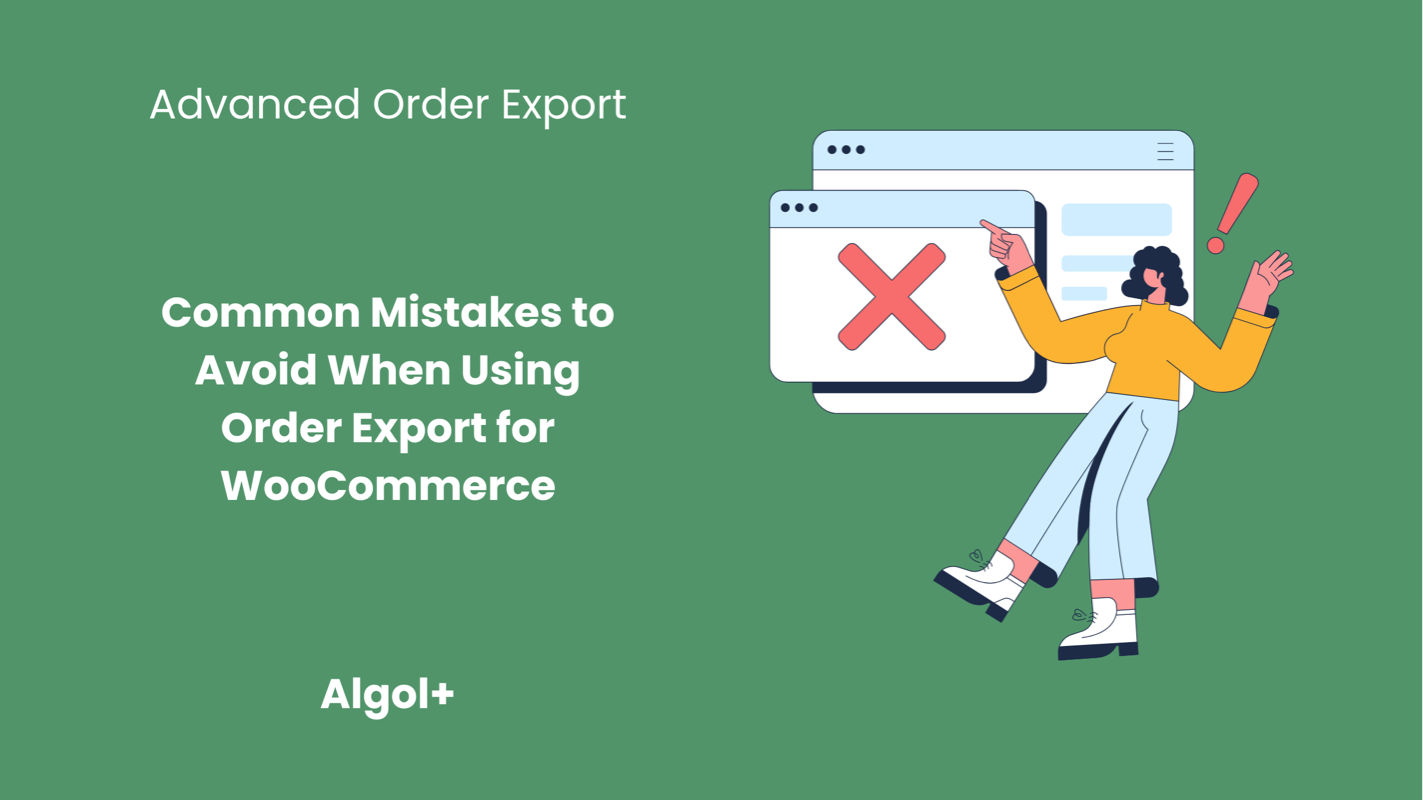Common Mistakes to Avoid When Using Order Export for WooCommerce
Table of Contents
As an online store owner, it is crucial to have a smooth and efficient order export process in place. This process involves exporting orders from your WooCommerce store to a file that can be easily shared with third-party platforms or fulfillment services.
In recent years, the use of order export plugins for WooCommerce has become increasingly popular among store owners. These plugins offer a range of features that can simplify and streamline the order export process. However, like any other technology, there are some common mistakes that store owners make when using these order export plugins. In this article, we will discuss these mistakes and how to avoid them.
Not Selecting the Right Plugin
The first and most crucial mistake that store owners make is not selecting the right plugin for their needs. With a plethora of order export plugins available in the market, it can be overwhelming to choose the right one. However, it is essential to do thorough research and select a plugin that meets your specific requirements. Some plugins may have features that you do not need, while others may lack critical functions. Take your time to evaluate different options and choose the one that best suits your store’s needs.
You can read a review of the plugins in this article.

Not checking the export format
Another common mistake is not checking the export format before exporting data. WooCommerce offers various export formats, such as CSV, Excel, and PDF. Each format has its own advantages and limitations, and choosing the wrong format can result in data being exported in an unusable or unreadable format.
Advanced Order Export for WooCommerce has even more formats, such as TSV, HTML, XML and JSON. Moreover, you can export your orders to other services using Zapier.
Not scheduling regular exports
Many merchants make the mistake of not scheduling regular exports and instead only exporting data when needed. This can lead to missing out on important data and insights that can help improve their business. Regularly exporting data allows merchants to track trends and identify patterns, which can be used to make data-driven decisions.
To avoid this mistake, merchants should set up a schedule for regular exports, depending on their business needs. This can be daily, weekly, or monthly, depending on the volume of orders and the frequency of changes in their data.
Watch our video on how you can schedule your exports in Advanced Order Export for WooCommerce.

Not filtering the orders
Another mistake that merchants make is not filtering the orders before exporting them. By default, WooCommerce exports all the orders, including cancelled and refunded orders. This can lead to confusion and inaccurate data analysis. Therefore, it is crucial to filter the orders based on their status, date, and other criteria before exporting. This will ensure that you only export the orders that are relevant to your purpose.
Not backing up data
Merchants often make the mistake of not regularly backing up their data. This can result in losing crucial data in case of system crashes, accidental deletion, or other unforeseen circumstances.
To avoid this mistake, merchants should make it a habit to regularly back up their data. They can also use backup plugins or services to automate this process and ensure their data is always safe.
You might have missed it: a video about the backup tool function, with which you can copy your export settings.

We shows you the most common mistakes that users make when choosing and using an export plugin. They are often caused by inattention and can be corrected manually. However, if you have a problem and you don’t know how to solve it, then feel free to write to our support. The Advanced Order Export for WooCommerce plugin team is always ready to help you!



